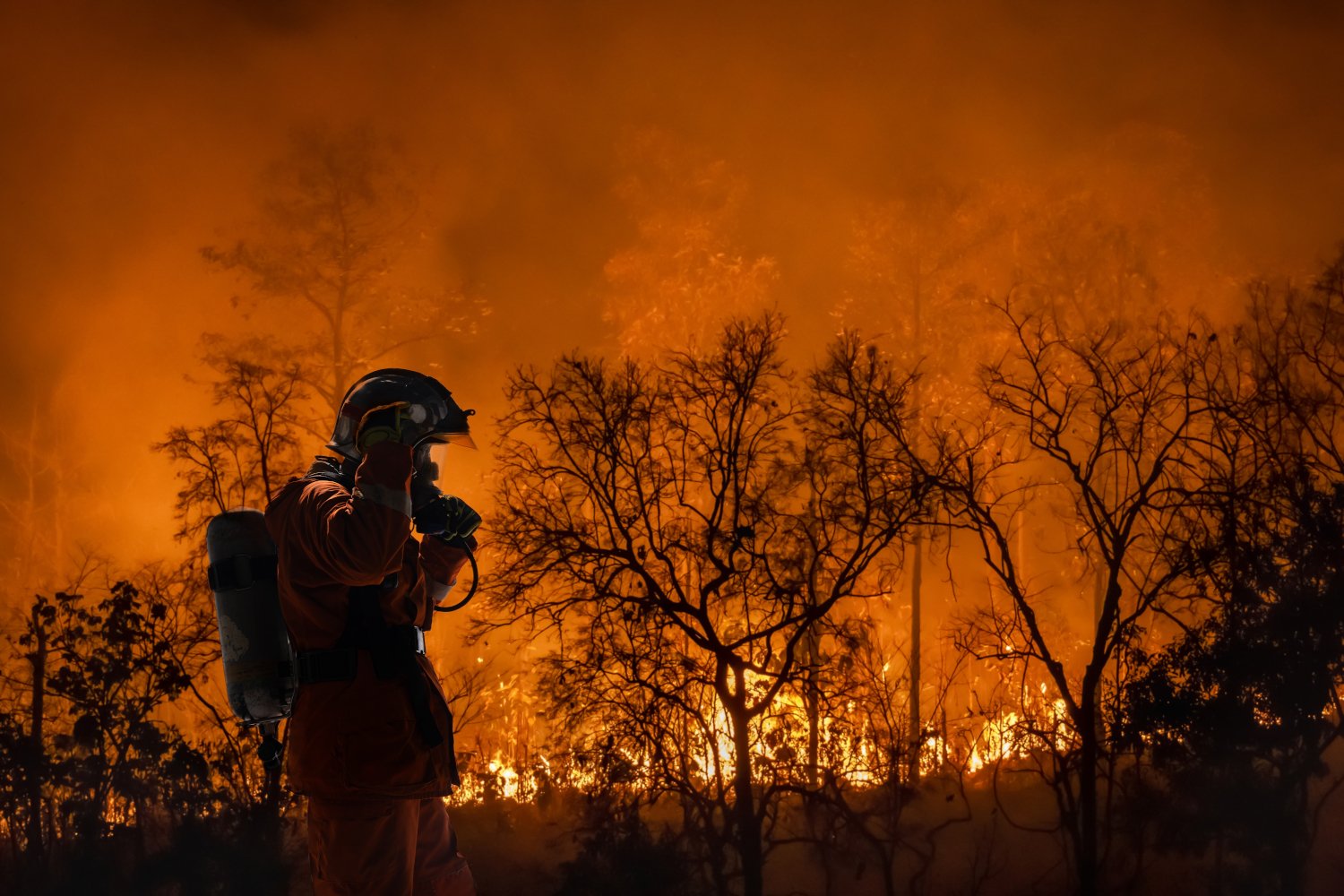For nearly seven decades, spanning over a dozen presidencies, the United States has been at the forefront of scientific advancement, with its prowess in the field being arguably unmatched. Researchers at both universities and federal agencies have made groundbreaking contributions, revolutionizing weather forecasting, developing cures for deadly diseases, and initiating the monitoring of greenhouse gas emissions. As early as 1990, Congress recognized the significance of understanding climate change, acknowledging that human-induced global warming poses a substantial threat to human health, global economic stability, and social well-being.
However, the Trump administration appears to hold a dissenting view. Within the first 100 days of its second term in the White House, the president has issued a series of orders that destabilize the existing scientific framework. Earlier this month, the administration effectively scrapped the government’s comprehensive National Climate Assessment, a quadrennial report that provides scientifically-backed guidance for preparing towns, cities, and regions for a hotter climate, by canceling the contract with the firm facilitating the research.
Leaked memos reviewed by Grist reveal that the White House intends to slash scientific research at NASA and eliminate all research at the National Oceanic and Atmospheric Administration (NOAA), which is responsible for a wide range of climate, weather, and conservation science. Furthermore, the administration has frozen over $2 billion in research funding to Harvard, the latest in a series of punishments targeting top universities that the president claims have been overrun by “woke” ideology.
Experts fear that this assault on science could jeopardize the United States’ status as a global leader in climate research. Since Trump took office in January, the federal government has frozen billions of dollars in climate funding and grants for universities. Simultaneously, Elon Musk’s Department of Government Efficiency has significantly reduced the federal workforce, firing thousands of scientists, in an effort to cut a trillion dollars in “waste and fraud” from the federal budget. This month, Musk’s team began canceling hundreds of millions of dollars’ worth of scientific grants distributed by the National Science Foundation, and last week, Secretary of State Marco Rubio shuttered the Office of Global Change, which oversees international climate negotiations.
According to Max Holmes, who leads the Woodwell Climate Research Center in Massachusetts, “One of the things that has made America great and will keep America great is our scientific excellence and world leadership in climate science. Gutting those things will send our country in a different direction.” Holmes emphasized that while other countries may fill the void, the loss of American research and expertise will have a profound impact on the entire world.
One way to gauge a country’s scientific influence is by examining the number of papers its researchers publish. For the past quarter-century, American scientists have produced approximately 400,000 studies each year, an unrivaled pace that has remained consistent throughout presidential administrations until China’s scientists surpassed it in 2016. This is largely due to the federal government, which has been the country’s largest funder of science and research since World War II.
Until now, no former president, including Trump, has attempted to dismantle this legacy. The fourth edition of the National Climate Assessment, a recurring report mandated by Congress under the U.S. Global Change Research Program in 1990, was nearly complete when Trump first took office in 2016. Although his administration limited the report’s publicity upon its release, they did not alter the contents, according to federal scientists who worked on it.
However, this time is different: On April 9, the Trump administration ended the contract with the consulting firm responsible for running the U.S. Global Change Research Program, a likely fatal blow for the sixth National Climate Assessment, which was due to be published in the next few years.
Katharine Hayhoe, a leading author of the last four assessments and a climate scientist at Texas Tech University, stated, “For hundreds and even thousands of years, we humans have been making decisions based on conditions of the past. It’s like driving down the road looking in the rearview mirror. But now, thanks entirely to human actions, we are facing a curve in the road greater than we humans have ever confronted.”
The termination of the Global Change Research Program has more immediate consequences. The program’s interagency working groups are the primary means by which federal agencies collaborate on climate issues, sharing data and expertise on greenhouse gas monitoring and sea-level rise. Federal scientists told Grist that the program was essential for efficient communication between agencies and that without it, continuing these collaborations may not be possible.
The program also facilitates the United States’ participation in the United Nations Intergovernmental Panel on Climate Change (IPCC), through which scientists from nearly 200 countries work together to create a global report with the latest climate science.
Kevin Gurney, an atmospheric scientist at Northern Arizona University and a leading author on several IPCC reports, noted, “The U.S. has long had a profound presence at these reports — we have excellent research capacity. Politics aside, having the best available knowledge on climate change problems is crucial.”
Gurney emphasized that because America’s scientific workforce is so large and holds a wealth of research, climate models, and data, a diminished U.S. presence would deprive other countries of crucial climate information. Pulling back could also dampen American input and influence over the contents of the IPCC report, which is used to inform international climate mitigation policies, such as a recently announced international shipping tax aimed at reducing emissions.
In 2018, the last year the Government Accountability Office took stock of federal climate funding, the government was spending over $13 billion on climate change research, with many agencies providing grants to universities or collaborating directly with them. The National Institutes of Health and the Department of Energy have both revoked large chunks of funding to universities, sparking lawsuits. In mid-April, the National Science Foundation, which provided $800 million toward climate research in 2018, froze all grant applications as Elon Musk’s team began combing through its books.
David Ackerly, dean of the Rausser College of Natural Resources at the University of California, Berkeley, stated, “Climate science is important in tackling a complicated problem, but a lot of this is not about the research. The research funding is being used as a political pawn in a battle about something else.”
Ackerly expressed concerns that a generation of students could lose confidence in pursuing careers in higher education, and international students, who earn roughly half of all graduate degrees in science and technology fields, may choose not to study in the U.S. Some schools have already tightened their belts by freezing or restricting their graduate admissions. Because graduate students provide the workforce necessary to conduct scientific studies, run laboratories, help teach classes, and write papers, the slimming of student populations means less climate research can be produced in the United States.
Gurney noted, “Our ability to educate the next generation of people to do this work is starting to be cut off. It may take a while, and we may not notice it at first, but we will. This is damage that could last for a long time.”
Holmes said that the escalating cuts signal to the international community that the U.S. is stepping back from leadership in climate research. With so much uncertainty, he said, scientists may begin to seek opportunities in other countries.
It appears the brain drain has already begun. According to a recent analysis from Nature, data from the scientific journal’s job board indicates that American scientists have submitted 32 percent more applications for international jobs during the beginning of this year compared to last year. In March alone, U.S.-based job seekers viewed international job listings 68 percent more than last year. At the same time, applications to U.S. institutions from European researchers fell by 41 percent.
Some European institutions are actively trying to attract American scientific talent. In March, France’s Aix-Marseille University said it was “ready to welcome American scientists” and created the Safe Place for Science program to sponsor those working in climate, health, and environmental fields. Germany’s top research institution, the Max Planck Society, announced a new transatlantic program to create collaborative research centers with American institutions. After job applications from U.S. researchers doubled over last year, the institution’s president said he is planning to tour U.S. cities to speak to Germany’s “new talent pool.”
Holmes emphasized, “Other countries will take the lead if we cede it, because we need leadership in climate solutions and science. The sooner we can right the ship, the sooner we can get heading in the right direction again.”
Rachel Cleetus, a senior policy director with the Union of Concerned Scientists, stated that nothing should be considered final until Congress approves the federal budget later this year. “Congress needs to push back on these disastrous cuts, because this scientific enterprise has been built up by investments over decades from U.S. taxpayers,” she said. “This is the crown jewel of science and expertise for our nation — even the world.”
Ackerly said that even if the lost funding is restored, the Trump administration’s attacks represent an unprecedented breakdown in the government’s longstanding support of science and research. It
Source Link



